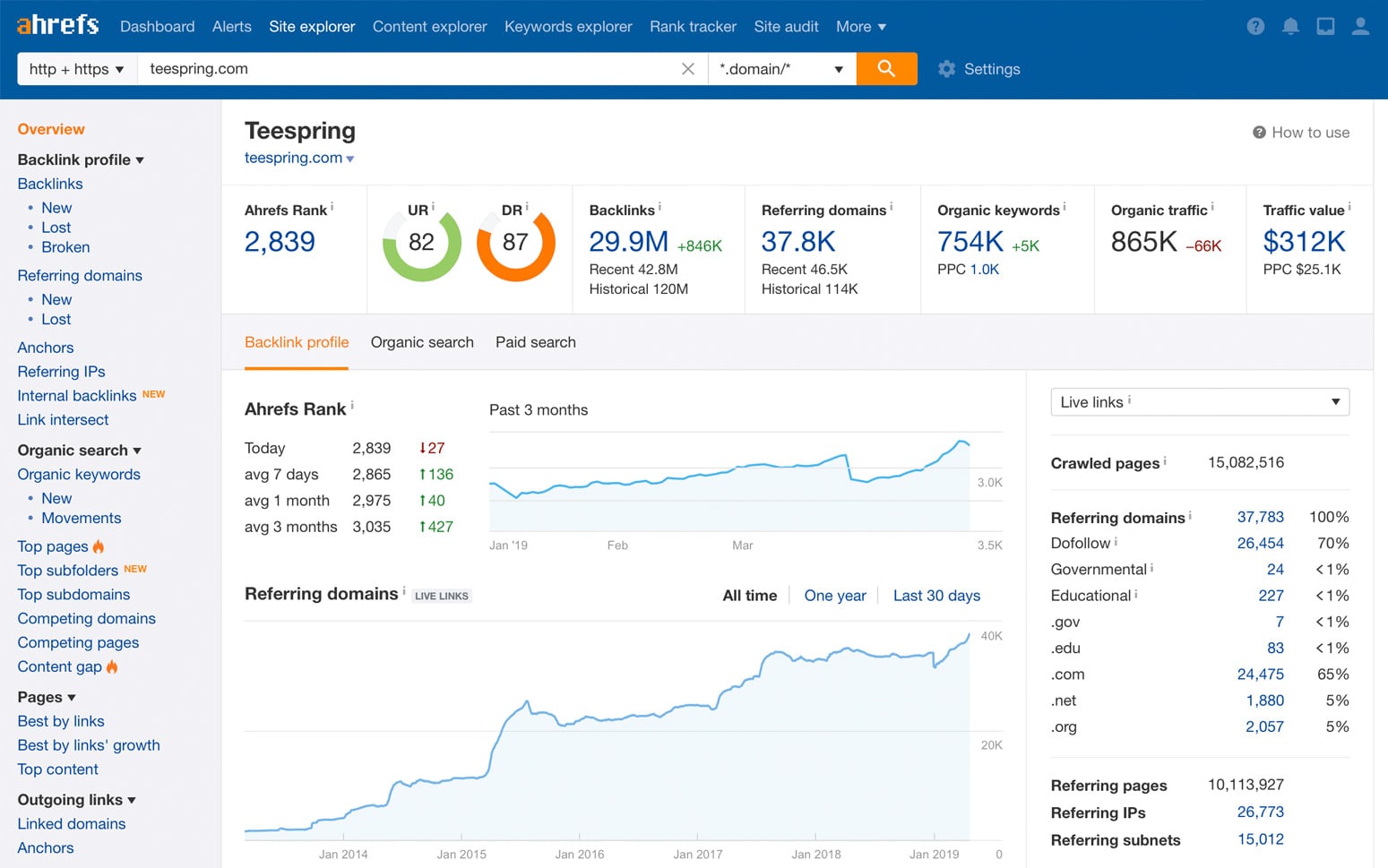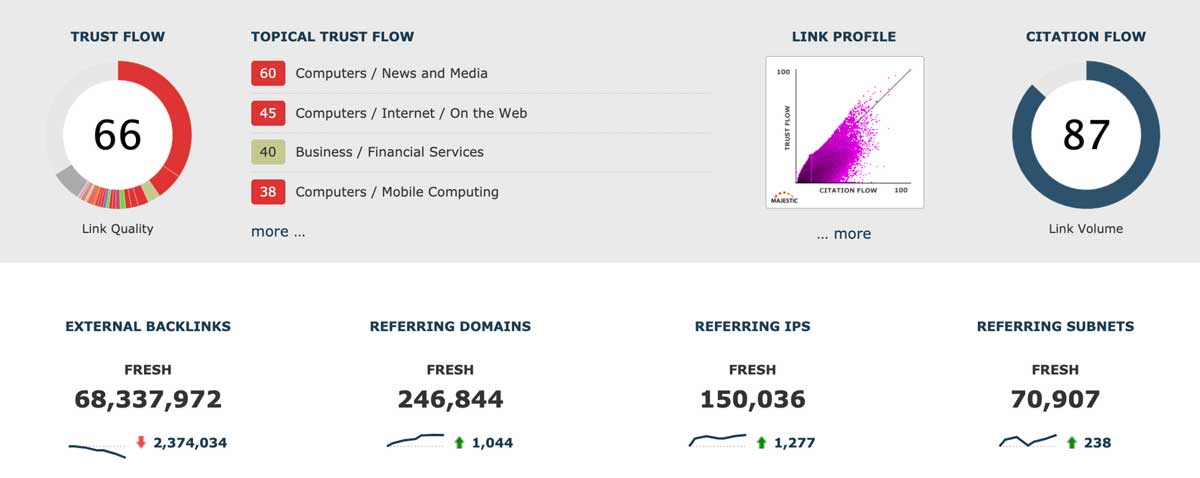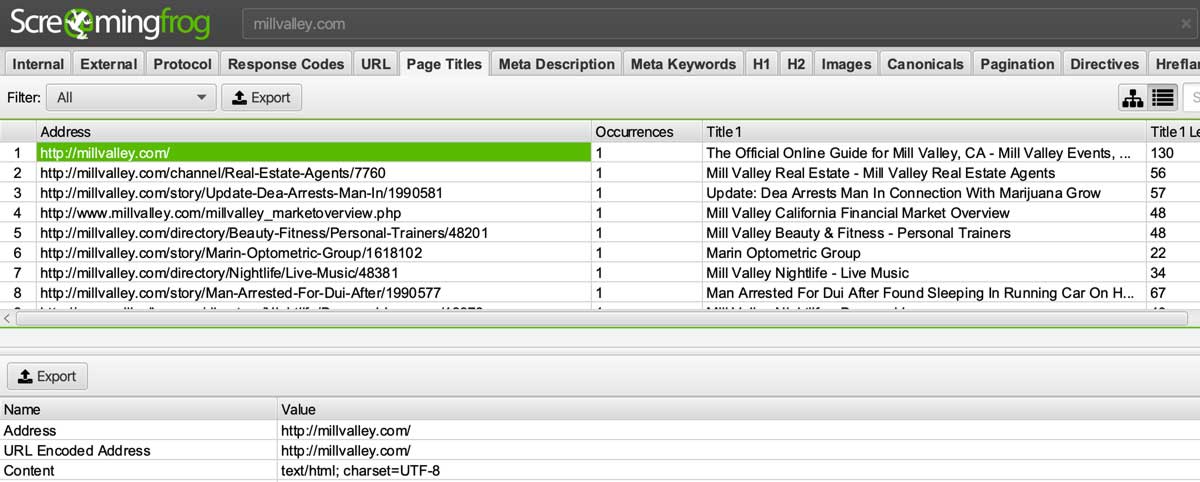The SEO Tools We Use Day to Day
We are often asked what tools we use. Here is a partial list of third-party SEO tools we use at Reputation X.
Search Engine Optimization (SEO) is a component of online reputation management (ORM). A good SEO strategy uses content, link building, negotiation, and other specific criteria to help push your website toward the top of search engine rankings. SEO tools make it easier. While every SEO or reputation expert has their favorite tools, here are ours. You can find reputation monitoring tools here.
These tools will help track your website’s performance in search engine results pages, track keywords, get content posted, and help improve outreach and link building activities.
Ahrefs
Ahrefs offers the best possible site and keyword coverage with data for 150 million keywords in the United States alone (+ more for over 150 other countries). The tool provides data to increase search traffic, research competitors, and monitor your niche. It is especially valuable when researching competitors so that you can learn why they rank so high and what you can do to outrank them.
This SEO tool offers professional-grade features for the most important SEO initiatives, including competitive analysis, keyword research, backlink research, content research, rank tracking, and web monitoring.
While Ahrefs does quite a bit, we use it mainly for link metrics, brand monitoring, and keyword research. Everyone seems to use it in a different way, and that’s OK too. We use Ahrefs everyday.
Buzzsumo
Although specifically an “SEO” tool it is a content tool – and content is part of SEO. Buzzsumo offers great research and search tools to discover fresh content ideas, find influential bloggers in your niche, and see how content is performing in search results and on social media. Buzzsumo will filter bloggers by niche, following, location, performance, and other factors to help you to find the perfect ones to reach out to when promoting content.
Our content managers love Buzzsumo.
Guest Post Tracker
Anybody who does a lot of guest blogging will appreciate the features within Guest Post Tracker. This platform helps you to find guest posting opportunities and manage campaigns. The search list features more than 1,500 sites that are accepting guest posts and has helpful filters that will narrow down your search and save you time looking for the next platform that is accepting guest posts.
Relying exclusively on guest posts may not be the best strategy, but most SEO campaigns involve some degree of guest content or contributorship. This site makes it easier.
PS, Reputation X also has a list of guest post opportunities here.
SEMRush
If you’re looking for one comprehensive tool to manage all of your SEO initiatives, SEMRush may end up being your tool of choice. This tool is packed with lots of monitoring tools that are easily displayed on one convenient dashboard. We use SEMRush every day.
You can view detailed keyword analysis, analyze competitors’ metrics, track backlinks, and more to improve the success of your SEO campaigns. There are many popular features that help you to better understand your traffic and search data, as well as that of your competitors.
We prefer SEMRush over Ahrefs for site analysis. But Ahrefs for link analysis. Like Ahrefs, SEMRush does a million other things too and each SEO practitioner seems to have their own special use for it.
Moz
Moz offers an SEO tool that comes with a place within its community network. Not only does the platform offer a wide range of SEO monitoring tools and large data banks, but you also get access to a supportive community. You can use the insights Moz tracks to analyze your site rankings, highlight potential issues, and determine which keywords you should target.
It is worth noting that Moz has perhaps one of the best educational resources for those wanting to learn SEO.
Google Search Console
Usually the first tool to come to mind when thinking of SEO is Google’s Search Console. The comprehensive features provide a road map for you to improve your performance on Google Search. You can measure your site’s search traffic and performance, fix issues, and just make sure it is overall structured in a way that Google likes and will reward in its search ranks.
It is the go-to tool for your own site SEO visibility. But if you are looking for data on someone else’s site, it won’t help much.
This is another tool we use very often.
Majestic
Majestic SEO is a great tool for in-depth SEO and link research. We use it often to determine the quality of a website from which we want a link (Trust Flow), or to decide which links we do not want (for example, when disavowing links with Google Search Console).
Again, we use this one often.
Screaming Frog
As you can see from the screenshot above, Screaming Frog is a technical SEO tool. It’ll tell you everything and more about your site, or anyone else’s site for that matter. It’s mainly for “on-page” SEO which includes things like page headings, character length, site structure, XML sitemaps, and much more. It’s like the Photoshop of SEO structure for your site. We use Screaming Frog very often to identify strengths and weaknesses of our clients’ websites. Note: using Screaming Frog requires fairly advanced SEO knowledge.
Benefits of improving your overall SEO strategy
As much as search engine algorithms can (and they definitely do!) change, one thing has remained constant: the necessity to focus on SEO efforts when doing any kind of reputation management work.
Once you figure out how to create content that shines on search engine results pages, you can begin to take better control of what people see when they search your name or business on Google. If what they see is an overwhelming amount of positive news and stories, you can work to keep it that way. If there is a barrage of negative information, there are steps you can take to improve that.
Improving your SEO is no easy task. That’s why we rounded up these tools to help you to better manage your SEO efforts. You can use one or several of them to help with your individual needs and goals. Do you have a favorite SEO tool that we missed? Let us know in the comments and we can add it to the list.
FAQs
What are some popular SEO tools?
Ahrefs, Buzzsumo, SEMRush, Moz, Google Analytics, Google Search Console, Majestic, Raven Tools, and Screaming Frog are popular SEO tools.
What is Ahrefs?
Ahrefs is an SEO tool that offers keyword coverage with data for 150 million keywords in the United States alone (and more for over 150 other countries). The tool provides data to on search traffic, keywords, competitor intel, and more.
What is Buzzsumo?
Buzzsumo offers great research and search tools to discover fresh content ideas, find influential bloggers in your niche, and see how content is performing in search results and on social media.
What are the benefits of improving your overall SEO strategy?
Once you figure out how to create content that shines on search engine results pages, you can begin to take better control of what people see when they search your name or business on Google. If what they see is an overwhelming amount of positive news and stories, you can work to keep it that way. If there is a barrage of negative information, there are steps you can take to improve that.
About the author
Kent Campbell is the chief strategist for Reputation X, a San Francisco Bay Area-based online reputation management services firm. He has over 15 years of experience with SEO, Wikipedia editing, review management, and online reputation strategy. Kent has helped celebrities, leaders, executives, and marketing professionals improve the way they are seen online. Kent writes about reputation, SEO, Wikipedia, and PR-related topics.
–
Tags: SEO.




